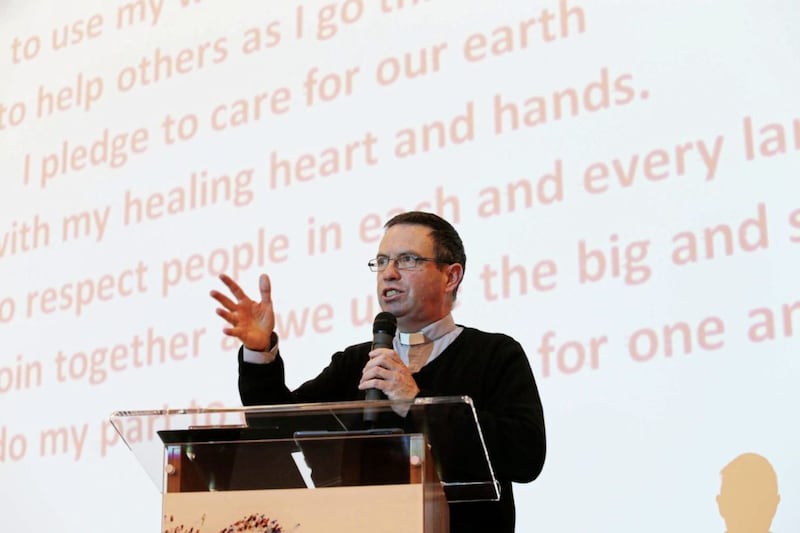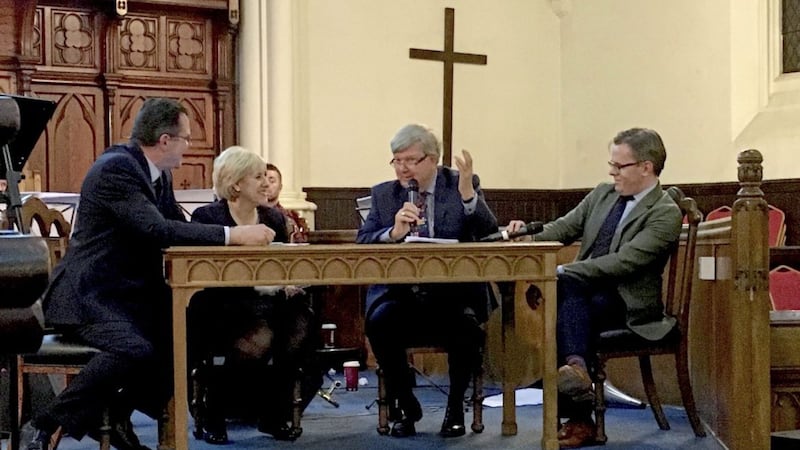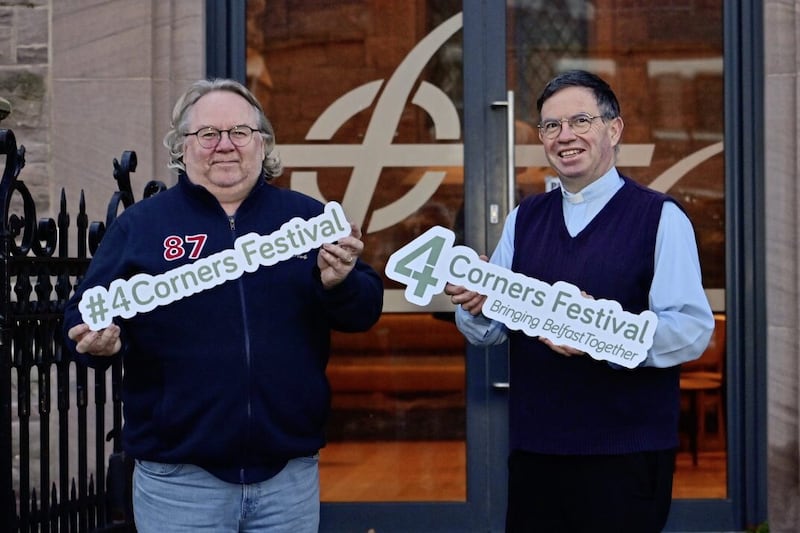RECENTLY I attended an evening service in a Presbyterian church where the congregation was invited to pray together in small groups.
I was very encouraged by the prayer of a young student who was in the same group as me.
He prayed that the 500th anniversary of the beginning of the Protestant Reformation would be used as an opportunity to help unite Protestants and Catholics and would not in any way be used to divide.
He also prayed that Catholics and Protestants would meet together to discuss and learn about the Reformation.
I asked his permission afterwards to refer to his prayer in this column.
Following on from the intention of the student's prayer, I would argue that this significant anniversary could provide some useful opportunities to learn about the issues that caused Luther to write his 95 Theses in the first place.
I believe it's important to note that Martin Luther wrote his theses with the intention they would be debated in an academic setting.
I also believe that whilst Luther was keen to see the reform of the Church, it is highly unlikely he would have had any idea of the impact the decision to do so would have had not only on Christianity but also on the wider world.
I am sure he had no desire to split the Church. Five hundred years later, I suggest we are still living with the consequences of the publication of the theses and the responses to them.
Making an effort to learn about Martin Luther, the Reformation and how all Churches have changed over the centuries would be a very valuable contribution to peace and reconciliation - and in the spirit of the recently relaunched One Small Step Campaign (@OneSmallStepNI).
Here are some events that may help if we want to learn about the Reformation:
- The Young Luther, by Philip Orr - Ballycrochan Presbyterian Church, Bangor - Sunday October 29, 7pm
This 40 minute play tells the story of Luther's life up as far as 1517 when, as a restless Augustinian friar, he nailed 95 Theses on the door of the church at Wittenberg, in Germany, challenging the leadership of the Church to debate what he believed was much-needed reform. There will be a discussion afterwards.
- Light from the Life of Luther - Fitzroy Presbyterian Church, Belfast - Thursday November 2, 7pm
An evening of ecumenical engagement, friendship and learning from Luther scholar Hubertus Blaumeiser, in association with Corrymeela, the Focolare Community and the Clonard-Fitzroy Fellowship.
Fr Hubertus Blaumeiser is a Catholic priest from the diocese of Augsburg in Germany.
His doctorate at the Pontifical Gregorian University was on the theology of the Cross in Luther as a key to his anthropology and world vision.
Fr Blaumeiser was present at the signing of the Joint Declaration on the Doctrine of Justification in 1999 in Augsburg and at the Lutheran-Catholic commemoration of 500 years since the Reformation on October 31 2016 in Lund.
He is engaged in a research project to bring together different theological faculties in Rome on the spirituality of the Reformation.
- The Reformation Then and Now: Perspectives and Change - Cardinal O'Fiaich Library, Armagh - Saturday November 4, 9.15am-4pm
This one-day conference aims to explore the unique legacy of the Reformation in the world today, particularly in Ireland. Places can be booked here.
- What did the Reformation ever do for us? - Agapé Centre, Lisburn Road, Belfast - Sunday November 5, 7.30pm
A panel discussion chaired by the Rev Dr Johnston McMaster looking at the ongoing implications of the various Church reformations, starting with Martin Luther in 1517, with contributions from different denominational and theological perspectives.
Other speakers include Fr Eddie O'Donnell (Catholic), Olive Hobson , Rev Lesley Carroll (Presbyterian) and Pastor Stephan Arras (Lutheran).
- Luther - McNeill Theatre, Larne - Thursday November 9, 8pm
John Osborne's play gives a portrait of the monk as he agonises about his doubts and disillusions and subsequently the consequences of his world-shattering cry for Church reform.
- Lisburn Museum's exhibition 500: Reformation 1517–2017 runs until Saturday October 28.
- For further information on events and perspectives visit www.reimaginingfaith.com/500-project and Gladys Ganiel's website.
- Fr Martin Magill is parish priest of St John's in Belfast. Together with the Rev Steve Stockman, the minister of Fitzroy Presbyterian Church in Belfast, Fr Magill is a founder of the 4 Corners Festival, which aims to promote unity and reconciliation in the midst of Belfast's - and Ireland's - troubled past.









